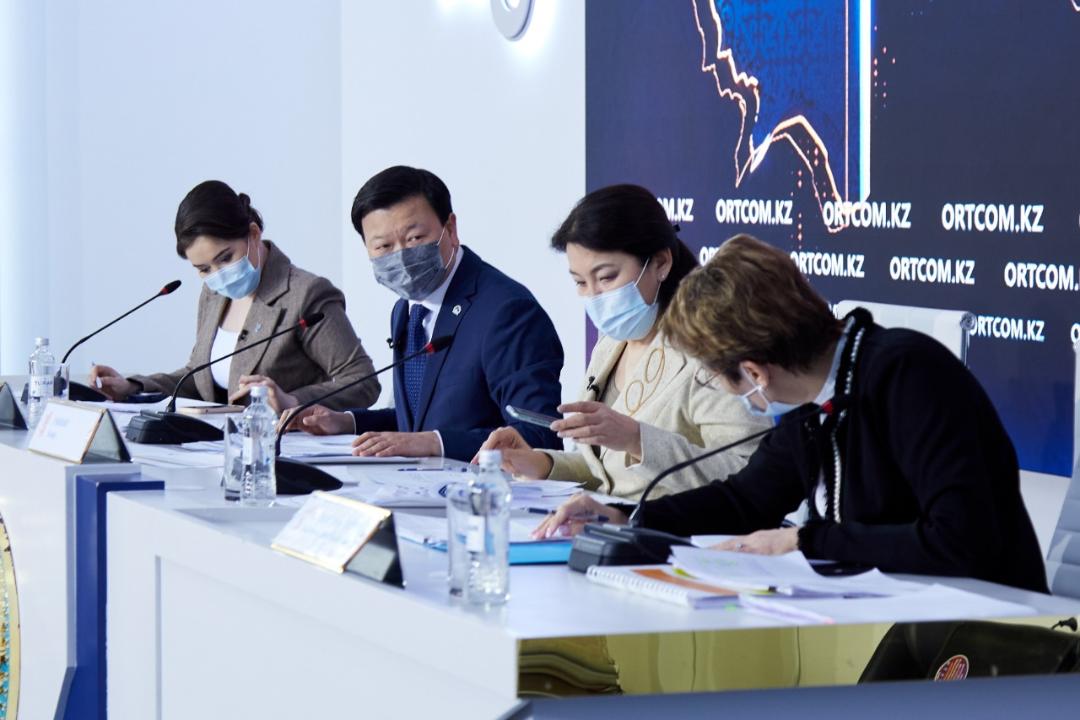
Today, Minister of Health Alexei Tsoi spoke at a briefing at the Central Communications Service under the President of the Republic of Kazakhstan, during which he reported on the epidemiological situation in the country, on the tightening of quarantine restrictions and on the vaccination against COVID-19 in the Republic.
According to the Minister, over the past 2 weeks, the incidence of CVI in the Republic of Kazakhstan has increased by 1.5 times from 11 300 to 17 142 cases, due to the growth in the cities of Almaty, Nur-Sultan, Shymkent, Aktobe, Almaty regions. Up to 56% of the total morbidity falls on residents of the cities of Almaty and Nur-Sultan, where the registration of cases increased from 100 cases per day in February to 500 cases per day in March. In the city of Nur-Sultan, the number of cases increased from 100 cases per day in February to 350 cases per day in March. In the regions where there is a worsening of the epidemiological situation, which have passed into the yellow and red zones, additional restrictive measures have been introduced, the most stringent measures have been taken in the city of Almaty. Since March, the volume of testing of the population has increased to 49 thousand studies per day, while in February up to 38 thousand studies per day were carried out.
The daily testing capacity is 113 thousand studies. Together with the World Health Organization, a new method of express PCR screening for the determination of COVID-19 strains has been introduced. “The reference laboratory of the branch of the National Center for Public Health studied positive laboratory samples obtained from patients with CVI from all regions of Kazakhstan. According to the results of the research, the probability of a mutation characteristic of the «British», «South African», «Brazilian» strains was revealed in all regions of the country, with the exception of 4 regions (East Kazakhstan, Kostanay, Pavlodar and North Kazakhstan).
According to the results of sequencing a DNA section of samples from patients in the city of Almaty, the circulation of British and South African strains was established, which are highly contagious, which can lead to a wide spread of infection, ”A. Tsoi said.
